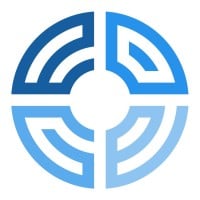IPC is a fintech company that focuses on the human element. With a global presence, we support local markets with our advanced cloud-based trading communications and managed connectivity solutions.
Through our portfolio of communications and connectivity solutions, we focus on solving business challenges and adapting to regulatory changes in the fast-paced global financial markets. This enables our clients to maintain consistent market access, a strong competitive advantage, and enhanced operational efficiency.
Join a team that is dedicated to delivering groundbreaking products and making a significant impact on our clients' success.
www.IPC.com
TITLE: Business Systems ArchitectDEPARTMENT: Corporate ITLOCATION: Madrid, SpainREPORTING TO: Director, Applications
ROLE TYPE: Hybrid, Full timeOverview of the team
IPC’s IT department is responsible for delivering cutting-edge technological solutions to meet the communication compliance and network solution needs of global financial institutions. As a leader in the financial markets, IPC ensures agility and efficiency in advanced data networks, compliance, and collaboration for its global clients.
The Business Systems Architect will be part of the IT Business Systems Team, working closely with business system owners & stakeholders, technical and infrastructure teams.
Role Overview
The main role of a Business Systems Architect is to provide the business with a system vision, which is the high-level description of the system's purpose, scope, goals, and constraints. The system vision guides the system architecture, which is the logical and physical structure of the system's components, interfaces, and interactions. The Business Systems Architect will work closely with the business, domain experts, and users to elicit and validate the system requirements, and to align them with the system vision.
Design the system architecture: The system architect will design system architecture, which is the blueprint for the system development and deployment. The system architecture specifies the system's functional and non-functional requirements, such as performance, reliability, security, scalability, and maintainability. The system architect also chooses the appropriate technologies, standards, patterns, and frameworks to implement the system architecture. The system architect collaborates with the software engineers, hardware engineers, and other technical specialists to ensure the feasibility and compatibility of the system architecture.
Provide Guidance: The system architect will provide guidance to the Business on the best practice in system processes and procedures, system capabilities and future use cases.
Communicate the system architecture: The Business System Architect will communicate the system architecture to the various stakeholders, such as the project managers, developers, testers, customers, and regulators. The Business System Architect uses various methods and tools to document and present the system architecture, such as diagrams, models, specifications, and prototypes. The system architect also reviews and evaluates the system architecture throughout the system lifecycle and provides feedback and guidance to the system development team.
Lead the system development team: The Business System Architect will provide leadership to the system development team, who implement, test, and deploy the system. The system architect also helps resolves any technical issues or conflicts that arise during the system development.
Manage the system changes: The Business System Architect will help drive and manage the system changes, which are the modifications or additions to the system that occur after the initial deployment. The system changes can be driven by various factors, such as new requirements, feedback, errors, or enhancements. The system architect evaluates the impact and feasibility of the system changes and proposes the best solutions to implement them. The system architect also ensures that the system changes are consistent with the system vision and architecture, and that they do not compromise the system's quality or functionality.
Stay updated on the system trends: The Business System Architect will stay updated on the system trends and meet regularly with system providers, which are the emerging or evolving technologies, standards, practices, and challenges that affect the system domain. The system architect monitors and analyses the system trends and determines how they can benefit or threaten the system. The system architect also learns and adopts the best practices and innovations in the system field and shares them with the system development team and the system stakeholders.
Essential Skills and Experience to be Successful in this Role:
• Experience with: Salesforce, Oracle ERP and Microsoft Architecture
• Communication: Effective communication skills to convey ideas and information to others.
• Creativity: To develop innovative solutions to complex problems to help save time and money.
• Problem-solving: Identify issues, research potential solutions, and implement the most effective resolution quickly and efficiently.
• Research: The ability to research and understand the components of a project and provide guidance for the business to make informed decisions about how to build a system.
• Leadership: Leadership skills are required to motivate the team and encourage them to work together to achieve common goals.
Desired Skills and Experience:
• Certified System Architect (CSA)
• Certified Senior System Architect (CSSA)
• Salesforce - Certified Technical Architect (CTA)
PLEASE SUBMIT YOUR CV IN ENGLISH
What’s in It for You?
At IPC, your compensation is only part of the package. We are committed to investing in a range of programs and initiatives to improve the overall experience of our employees.
In addition to a collaborative, high-performing team environment, we’re pleased to offer benefits including:
- Competitive Base Salaries
- Benefits Package: Private Health Insurance + Sodexo Transport Pass + Sodexo Restaurant Pass
- Additional Time off for Charity Work and Volunteering
- Tuition Reimbursement
- Certification Bonus Program
- Access to “IPC University” our Internal E-Learning Platform
- Access to LinkedIn Learning
- Structured Onboarding Training and Peer Mentor Support
- Wellness Program
- Employee Referral Scheme
Further information about your benefits will be provided during your onboarding process.
Additional Information:
At IPC, we believe that hybrid working creates an inclusive, flexible environment where employees can perform at their best, and teams can collaborate, innovate, and celebrate successes together. We spend around 60% of our time in the office and around 40% of our time working remotely. Some employees may be required to work from the office or client sites more than 60% of the time, if required by their role and/or client needs.
Your precise work schedule will be determined by you and your Line Manager before commencement of employment with IPC.
IPC’s Work Culture:
The IPC work culture is one that fosters inclusion, prioritizes innovation, and maximizes potential. We are a global ecosystem, full of diverse people that together made IPC what it is today. Our strength as an organization is the sum of our different backgrounds, perspectives, skills and geographies; supported by an ironclad commitment to constructive dialogue and open-mindedness. We live and breathe our commitment to innovation by embracing bold ideas, seizing new opportunities and striving for excellence. Our people have continued to deliver ground- breaking solutions to our clients for over 50 years.
Top Skills

What We Do
IPC is a dedicated Fintech company focused on providing our clients with connectivity, security and flexible solutions to reach financial markets everywhere since 1973.
IPC has over 7,000 customers around the globe. From our award-winning communications platforms to our suite of compliance and network connectivity solutions, we focus on solving business challenges and meeting changing regulatory requirements, so our clients can:
▶ Maintain constant market access and liquidity
▶ Capture a competitive advantage, control costs and improve return on equity
▶ Improve operational speed, productivity and efficiency








